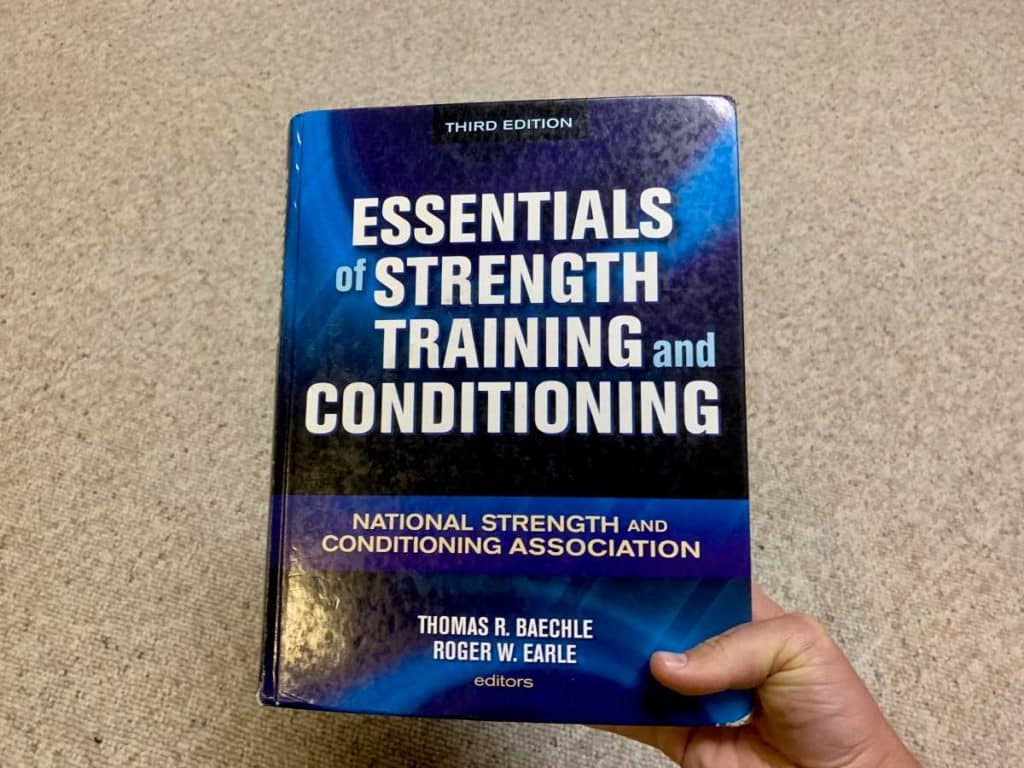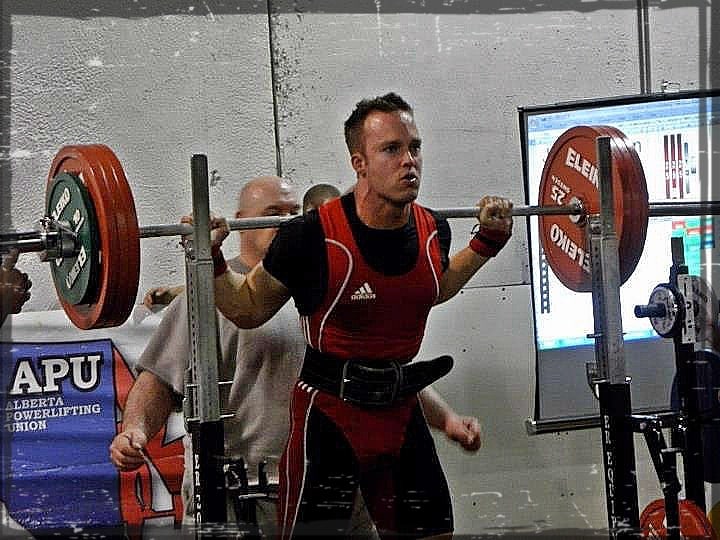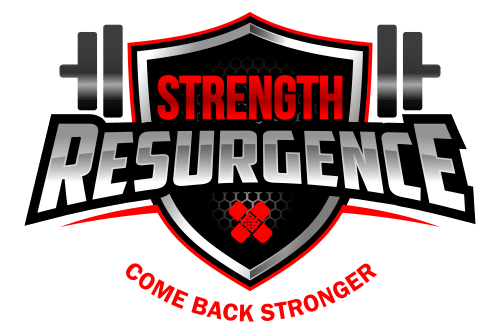A common question I am often asked by new and aspiring physical therapists is whether or not a CSCS designation is worth pursuing.
While the CSCS designation is not specific to the field of physical therapy, physical therapists working with active and athletic populations often hold this designation as it helps to convey the notion that the individual has a foundational level of theory and knowledge for performance-based strength & conditioning.
While the answer as to whether or not the CSCS designation is worth pursuing can vary based on a number of factors, physical therapists working in orthopedics-based settings who treat (or would like to treat) physically active and/or athletic populations can benefit greatly (in a number of ways) from being CSCS credentialed.
It’s important to note that it’s certainly not a make-or-break certification when it comes to being an exemplary practitioner. Believe me when I say that there are plenty amazing non-CSCS physical therapists and sport physical therapists who know more than the average CSCS-credentialed individual when it comes to the realms of strength training and conditioning. So, is it essential? No. But can it be helpful? Absolutely.
For those who would like to specialize with the aforementioned patient population and are just starting out as a licensed physical therapist, the CSCS can serve as a great entry point to the world of having advanced understanding of all things strength and conditioning.
The remainder of this article will cover the various ways in which the CSCS can help serve the physical therapist.
Article overview:
- What is the CSCS designation?
- Which types of physical therapists can benefit from the CSCS?
- How does it benefit the therapist?
- How does it benefit the patient?
- How does one study for the CSCS examination?
- How my CSCS designation has benefited me as a practitioner
- Concluding remarks
What is the CSCS designation?

The Certified Strength & Conditioning Specialist (CSCS) designation is an internationally recognized certification that recognizes an individual as a professional who applies scientific knowledge to athletes and athletic individuals to improve their athletic performance.
These professionals are able to test athletic performance, design specific exercise training regimens and provide guidance to the individual on areas such as nutrition and prevention of injuries.
The certification is given and governed by the National Strength & Conditioning Association (NSCA), and can only be obtained by an individual who has completed (or is in the process) of completing an undergraduate degree consisting of specified undergraduate courses such as anatomy, physiology among others.
The certification requires renewal every three years along with submitted proof of having completed a specified amount of continual education units (CEU’s) specific to the realms of human performance and health.
Which types of physical therapists can benefit from the CSCS?
While there are zero consequences to having more knowledge and abilities regardless of the type of physical therapist you wish to become, the CSCS is a designation that will best serve physical therapists who are looking to work with and treat individuals who fall within an active and/or athletic population. Those who are looking to work in orthopedics-based settings will likely find this credential the most appealing.
Therefore, physical therapists who would like to have a better understanding of performance-based exercise (as opposed to strictly therapeutic-based exercises), training regimens and other factors that can greatly influence performance-based athletics are the primary demographic who can benefit from this certification.
A basic understanding of nutrition for athletic performance is also a component of the CSCS designation. If however the physical therapist is looking solely looking for nutritional training along with how to coach individuals through nutritional strategies, I would recommend taking the Level 1 Precision Nutrition Program (the link will take you to their site where it will give you an overview of their entire program). Please note that this is an affiliate link, so I will receive a small commission on any purchase you make (at no additional cost to you).
The Precision Nutrition program goes over not just a greater extent of nutritional information but also consists of how to effectively coach individuals with their nutritional lifestyle based on their goals and nutritional experience. The knowledge I acquired from their level 1 program has been a game-changer for me when working with many of my athletes and patients.
How does the CSCS designation benefit the physical therapist?

While physical therapy school covers the basics of exercise rehabilitation, it does very little (if anything) to explore the world of performance-based training. Many students explore more of this world in their undergraduate degrees if their degree is in the realm of exercise physiology, kinesiology, physical education, etc. But since many PT’s do not complete an undergraduate degree within these realms, their knowledge of performance-based exercise and training can be quite limited if not entirely non-existent.
As a result, there are many therapists who would like to enhance their knowledge and application of performance-based exercise. It is, after all, an incredibly important ability to have and one that can greatly benefit the value and worth of the PT to these respective athletes and individuals.
Physical therapists often work with athletic patients and those patients often seek to physically train in ways that can further help reduce or prevent injury while simultaneously improving athletic performance. In these circumstances, the knowledge obtained by the therapist through the CSCS certification can be of great benefit to the therapist’s reputation.
In other words, the therapist becomes known by others as the “go to” therapist for not just treating the patient’s injuries, but for ensuring their training regimens and performance-based activities are both safe and effective. Thus, the PT’s reputation grows throughout the local community of athletes and/or active population.
Aside from the therapist having greater confidence in prescribing exercises and executing sound training theory, the therapist is better able to identify and act on the specific strength & conditioning needs of the patient. This of course benefits the patient (discussed in the next section), but also serves to help foster effective collaboration to the patient’s coaches, personal trainers, etc.
Having basic understandings of implementing periodized training regimens, performance-based strength training and conditioning methodology along with knowledge of other factors pertaining to athletic performance allows the therapist to better perceive and live within the world of the patient. The result is a physical therapist who strongly identifies and understands what the patient experiences and is after within their physical pursuits.
How does the CSCS designation benefit the patient?

The benefits offered by the patient are as numerous as they are beneficial. The important thing to note is that your extra knowledge and expertise pertaining to all things strength & conditioning can benefit the patient through two primary means:
The first is of course the direct application of that knowledge and expertise to the individual’s needs. This includes aspects such as advanced exercise selection and technique, advanced training protocols and planning (think periodization) along with a better understanding of the physiological needs of that particular individual. Combine this with your knowledge of anatomy, therapeutic exercise and injury rehabilitation and it makes for a great skill set to have.
The second benefit to the patient comes from their understanding that you have advanced knowledge and expertise pertaining to what they’re likely seeking. With the patient having confidence in their therapist’s abilities to better understand their unique demands such as training variables, training methodology and physical conditioning principles, a stronger patient-practitioner rapport is likely to develop. And when it comes to a stronger rapport, the more the patient trusts the practitioner and perceives them to understand and relate to their exact needs, the better the rehabilitative process becomes.
How does one study for the CSCS examination?
While I won’t go into details within this article about what’s specifically covered on the exam or what the exam consists of, the best way to go about studying for the exam is to read through the textbook Essentials of Strength Training & Conditioning by Thomas Baechle & Robert Earle.
The entire examination is based off the contents found within this textbook, and while it may seem like a lot of information, the vast majority of it (if not all of it) should have been instructed to you throughout your undergraduate studies if you did a degree in kinesiology, exercise physiology or a related field. This isn’t to say that you won’t need to do a lot of review or brush up on topics and concepts or learn them to a deeper extent, but don’t be intimidated by the extent of material you need to know.

If you didn’t take an undergraduate degree within these realms, don’t fret. You’re plenty smart enough to learn the concepts and principles within the textbook. There may be a decent chunk of material to learn, but it should be rather straightforward so long as you have basic knowledge and understanding of physical exercise.
Back around 2010 when I took the exam, I took two months to read the textbook cover to cover while brushing up on concepts along the way. I did my undergraduate degree in physical education and never once came across a concept in the book that wasn’t covered at some point in my undergraduate coursework. Therefore, I found the entire study process to be rather straightforward. I travelled to Seattle to write the exam and had no problems passing it.
How my CSCS designation has benefited me as a practitioner

I’ve been CSCS designated since 2010 and I’ve no doubt seen the doors it has opened for me along with the reputation its helped to carve out for me. That being said, I’d encourage you to keep something in mind if you want to maximize the leverage that this designation can help provide you with:
While the “CSCS” letters behind your name can open a door or two, the ability to effectively build your reputation upon being a practitioner who can generate and sustain a caseload from it comes down to how much you’ve applied strength and conditioning principles (in order to TRULY understand it) to your own life.
While many clients that I’ve trained within gyms or treated within the clinic have come to me because they’ve read up on my interests and my formal academic training, it’s ultimately been my ability to understand (and relate to) their specific performance-based training needs through my own personal experiences that has fostered strong patient-practicioner trust. And it’s this deeper level of trust that oftentimes yields the outcomes that they’re after.
I believe this to be the result of over a decade of physically immersing myself in the world of strength and conditioning, not just from just merely reading books and articles. Knowledge is one thing. Successful application of that knowledge is another.
Combining those years with the ability to tag the letters “CSCS” behind my name is what has ultimately helped me gain a strong sense of trust and rapport with the strength athletes that I train and/or rehab. They see the CSCS behind the name AND see a guy that has lived it and pursued it within his own life. I believe it’s this particular combination that has afforded me the number of injured athletes and weekend warriors who have sought me out, asking if I can help them recover while making sure it doesn’t happen again further down the road.
So, the CSCS is a powerful designation to have, but remember that earning the credential is just the tip of the iceberg. To be able to truly know, understand and effectively apply the concepts, you need to know what they feel like, not just what they look like.
If you can do that, the CSCS designation will serve you well for standing out a bit more within your field. And as a new PT graduate, that can be an amazing thing.
Concluding remarks
Ultimately, like anything else in life if you want to get really good at something, you need to immerse yourself in the world of it and practice it routinely. You need to know it both as an academic AND also as a practitioner. The piece of paper that states you have the theoretical knowledge is a small part of the battle in developing true proficiency.
That being said, the CSCS designation is a great credential to have behind one’s name if they wish to begin to stand out within their field. If you’re a physical therapist who hopes to garner a reputation for knowing what you’re doing when it comes to understanding and implementing the theories of performance-based training, the CSCS designation can serve you well. But don’t think that simply earning the designation is enough. That’s only a small component.
Like anything else in life, to truly master anything one must devote their life to the pursuit of that subject’s mastery. It takes time to become a true master, but the CSCS helps others to know that you’ve got a solid foundation underneath you and that you’re serious when it comes to being seen as someone who wants to stand out a bit more within their field.
Use the “CSCS” letters to inform others that you have the theoretical knowledge to obtain the official designation, but show them that you can affectively apply the theories by looking the part and pursuing your own strength and conditioning needs.
IF you’re willing to do this, then the CSCS is a great designation to pursue, and one that I believe will help you not only to begin to stand out within your field, but will also help you better serve, better treat and better train the athletic-based patients who come to you for your expertise.

Hi! I’m Jim Wittstrom, PT, DPT, CSCS, Pn1.
I am a physical therapist who is passionate about all things pertaining to strength & conditioning, human movement, injury prevention and rehabilitation. I created StrengthResurgence.com in order to help others become stronger and healthier. I also love helping aspiring students and therapists fulfill their dreams of becoming successful in school and within their clinical PT practice. Thanks for checking out my site!

